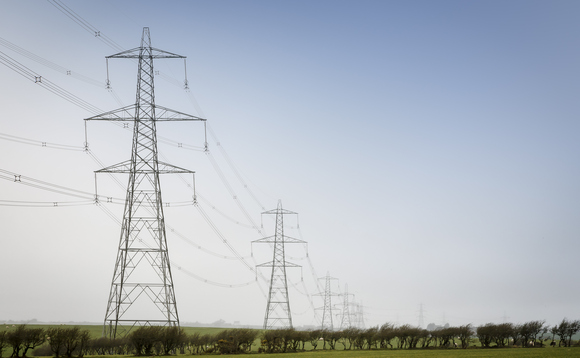Credit: National Grid
National Grid ESO data shows 1.6 million homes and businesses took part in its inaugural Demand Flexibility Services over the winter period
As many as 1.6 million households and businesses took part in the UK's new grid demand response regime over the winter months, significantly lowering peak power demand and delivering major emissions and cost savings in the process.
According to a new update from grid operation National Grid ESO, participants in its Demand Flexibility Service trials collectively saved enough electricity to power the equivalent of almost 10 million homes by responding to calls for them to reduce energy usage at peak periods of demand.
From the start of November last year to the end of March 2023, National Grid ESO offered homes and businesses the opportunity to take part in 22 grid flexibility initiatives designed to deliver savings in energy usage during peak periods of demand for electricity in return for incentive payments.
Working with 31 energy suppliers and aggregator firms over the period, and supported by Britain's national smart meter network, National Grid ESO said 1.6 million households and businesses took part in the trial events altogether, helping to balance the network across the winter.
The Demand Flexibility Service trials were designed to test both the extent to which people would be willing to change behaviours to reduce energy demand and the effectiveness of dynamic energy saving technologies. They also tracked the ability of demand response services to reduce bills, manage the influx of intermittent renewable energy capacity such as wind and solar farms over the coming decades, and curb demand for fossil gas.
Various initiatives saw participating homes and businesses encouraged or incentivised to avoid using electricity during peak periods of demand, which typically occur in late afternoons and early evenings on weekdays when pressure on the central power system is highest.
Overall, National Grid ESO said participants helped to deliver unprecedented levels of grid flexibility over the winter, reducing Britain's typical electricity use by as much as 3.3 gigawatt hours at key times, as the country grappled with the global energy crisis sparked by Russia's war in Ukraine.
It means the use of National Grid ESO's Demand Flexibility Service over the winter period saved electricity equivalent to that needed to power over 10 million homes, which is more than a third of British households, it said.
Consumers and businesses in southern England, East Anglia and East Midlands produced the biggest energy savings, the results show, with each on average delivering savings of over 370MWh, or enough power to meet the needs of over 1.1 million homes in each region.
Claire Dykta, head of markets at National Grid ESO, said the trial "successfully demonstrated the interest of UK consumers and businesses in playing a more active role in balancing our electricity needs".
"Their work, alongside the providers involved in the Demand Flexibility Service helped to maintain normal service for all GB electricity users," she said. "We are now working with industry and consumers to establish how this world leading service can grow from strength to strength and support the continued evolution of consumer flexibility in the UK."
National Grid ESO is now planning to undertake a holistic review of the trials alongside industry participants to assess how the service could be improved in future, with the findings expected to be published over the summer ahead of the service running again next winter.
It comes amid growing expectations that, thanks to a raft of energy and fossil gas saving measures taken across Europe over last winter, energy bills - which soared to eyewatering levels over the past year - are expected to fall slightly ahead of next winter.
Influential energy consultancy Cornwall Insight yesterday predicted typical household bill could be just over £2,000 per year from July, a figure that would be close to Britain's energy price cap level.
However, Dr Craig Lowery, principal consultant at Cornwall Insight, warned that many uncertainties about Britain's energy market and future costs remained, and in any case average bills would still be far from returning to pre-2020 levels and would therefore continue to pose challenges for homes and businesses.
"While consumers may feel more secure, we must not underestimate the fact that these bills remain unaffordable for many households," he said. "The global energy market and our heavy dependence on energy imports still impact bills. Moreover, unforeseen geopolitical events can easily disrupt the wholesale market again. It is crucial that the UK accelerates its journey towards energy self-sufficiency. Only by reducing our reliance on imported energy can we gain the confidence that bills will remain stable in the long term."
Want to understand what is going on at the cutting edge of sustainability? Check out BusinessGreen Intelligence - the premier information for professionals focused on the UK's green economy.











